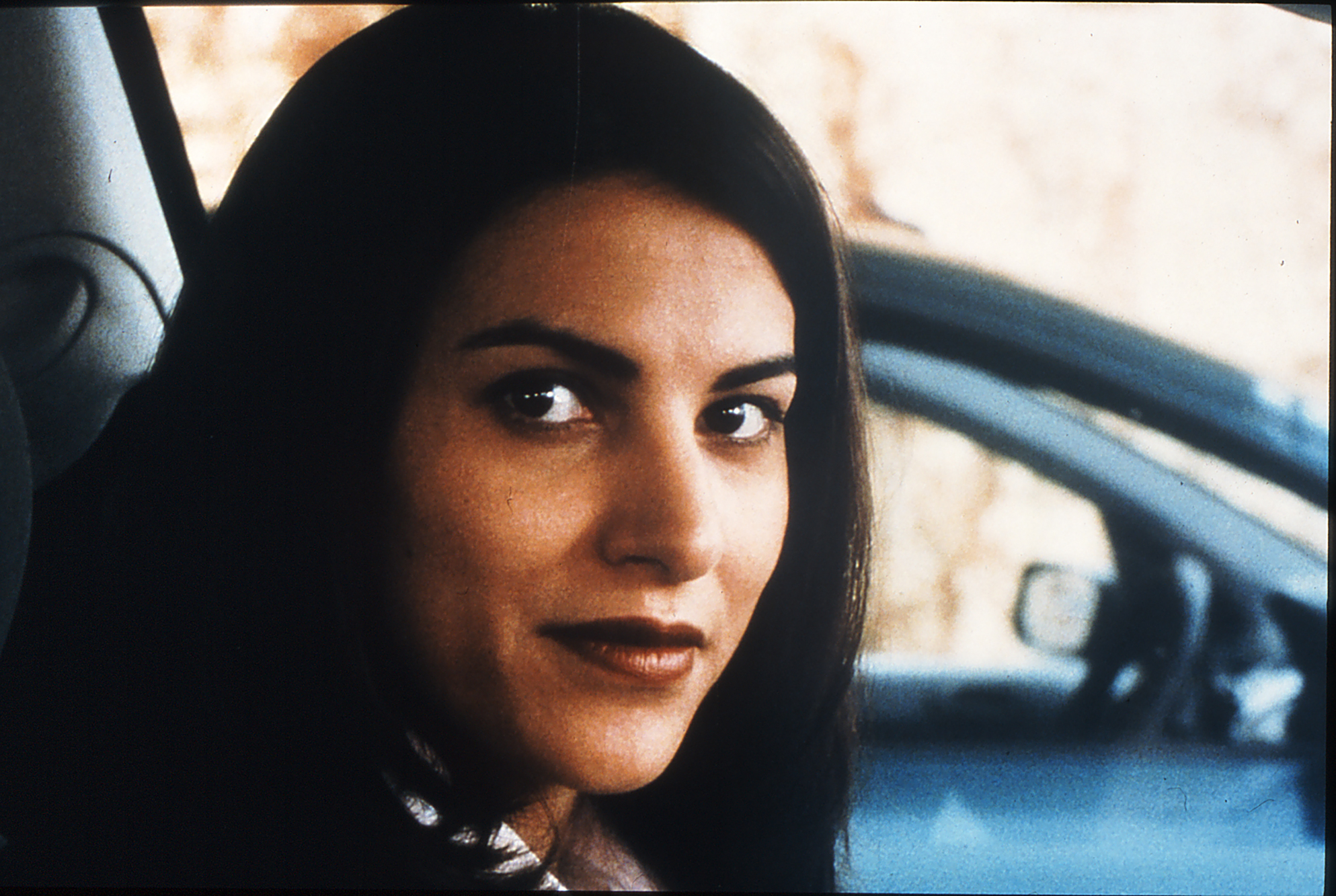CERCA
28 maggio 2024, 20.30 / Cinema De Seta
eterotopie
Intervento divino
Elia Suleiman
Palestina-Francia-Germania-Marocco 2002 / 89’ / v.o. sott. it.

[ita]
A Nazareth, in un quartiere residenziale dal vicinato scorbutico e violento, un uomo si sente male. Il figlio lo raggiunge, approfittando dell’attraversamento del checkpoint di Al-Ram a est di Gerusalemme per incontrare una donna che aizza e attira il desiderio dei soldati. La vita palestinese in Israele, all’inizio del Nuovo Millennio, è piena di assurdità e contraddizioni.
Il maestro del cinema palestinese Elia Suleiman racconta la difficile convivenza fra due popoli e due religioni trovando una sintesi satirica e accattivante che fa luce sull’atmosfera delle piccole cattiverie che israeliani e palestinesi si scambiano, nell’incapacità di trovare a loro volta una sintesi pacifica. Nelle piccole scenette comiche in stile Jacques Tati, in cui lo stesso regista si muove come attore protagonista quasi a reincarnare il mitico personaggio del bambino palestinese Handala, disegnato dall’artista Naji al-Ali, si mette in scena un’arena del conflitto gratuito e fine a sé stesso, comico e allo stesso tempo straziante, coreografia di un quotidiano ferito ma capace ancora di sognare e volteggiare con la leggerezza di un palloncino rosso.
[eng]
In Nazareth, in a grumpy and violent residential neighbourhood, a man feels ill. His son joins him, taking advantage of crossing the Al-Ram checkpoint, in East Jerusalem, to meet a woman who incites and attracts the soldiers’ desire. Palestinian life in Israel, at the beginning of the New Millennium, is full of absurdities and contradictions.
The master of Palestinian cinema Elia Suleiman talks about the difficult coexistence between two peoples and two religions, finding a satirical and captivating synthesis that sheds light on the atmosphere of the small mean things that Israelis and Palestinians exchange, in their inability to find a peaceful synthesis themselves. In the small comic sketches in Jacques Tati style, in which the director himself plays as the leading actor almost reincarnating the mythical character of the Palestinian child Handala, designed by the artist Naji al-Ali, an arena of gratuitous and useless conflict is staged, comical and at the same time heartbreaking, a choreography of a wounded everyday life but still capable of dreaming and twirling with the lightness of a red balloon.
ticket online | http://www.liveticket.it/evento.aspx?Id=503693
tutta la programmazione | https://www.liveticket.it/siciliaqueer
Elia Suleiman
[ita]
Attore, regista, produttore, sceneggiatore, originario di Nazareth, Israele, e nato nel 1960 da una famiglia palestinese. Studia in patria per poi trasferirsi negli anni Ottanta negli Stati Uniti, dove realizza due cortometraggi di cui uno, Homage by Assassination (1991) dedicato alla prima Guerra del Golfo, prima incursione nell’ironia e nel nonsense che tanto caratterizzano i suoi lavori successivi più celebri. Il suo primo lungometraggio, Cronaca di una sparizione (1996), si aggiudica il Premio alla Migliore Opera Prima al Festival di Venezia; il regista verrà poi celebrato a Cannes sia nel 2002 con Intervento divino (Gran Premio della Giuria e Premio della Critica, nonché Miglior Film Straniero agli European Film Awards) e con Il paradiso probabilmente nel 2019 (Menzione Speciale della Giuria e Premio FIPRESCI). Allo stesso Cannes porta uno dei suoi titoli più famosi nella competizione principale, Il tempo che ci rimane, nel 2009. Nel 2006 e nel 2014 è membro delle Giurie rispettivamente di Cannes e di Venezia.
[eng]
Actor, director, producer, screenwriter, born in Nazareth, Israel, in 1960 to a Palestinian family. He studied at home and then moved to the United States in 1980s, where he made two short films, one of which, Homage by Assassination (1991) was dedicated to the first Gulf war, and it was his first exploration of irony and nonsense, fundamental elements of his most famous and subsequent works. His first feature film, Chronicle of a Disappearance (1996), won the Award for Best First Film at the Venice Film Festival; the director would then been celebrated in Cannes both in 2002 with Divine Intervention (Grand Jury Prize and Critics’ Award, as well as Best Foreign Film at the European Film Awards) and with It Must Be Heaven in 2019 (Special Jury Mention and FIPRESCI Award). Still in Cannes he brought one of his most famous titles in the main competition, The Time that Remains, in 2009. In 2006 and in 2014 he was member of the Cannes and Venice Juries respectively.
Intervento divino
Elia Suleiman
Palestina-Francia-Germania-Marocco 2002 / 89’ / v.o. sott. it.
screenplay Elia Suleiman
cinematography Marc-André Batigne
editing Véronique Lange
music Amon Tobin, Natacha Atlas
cast Elia Suleiman, Manal Khader, Nayef Fahoum Daher, George Ibrahim, Jamel Daher, Amer Daher
producer Humbert Balsan, Elia Suleiman
contact http://www.pyramidefilms.com/
contact sales@pyramidefilms.com



